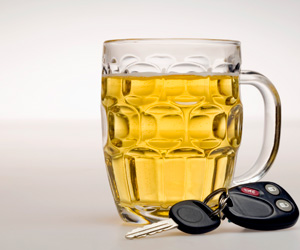Passing Field-Sobriety Tests Did Not Negate Probable Cause to Make
Arrest
By Joe Forward, Legal
Writer, State Bar of Wisconsin
 Sept. 24, 2012 – A driver who passes a field-sobriety test can
still be arrested for drunk driving, a state appeals court has
clarified. That is, field-sobriety tests aren’t necessary to
establish probable cause if police have other evidence of driving under
the influence of intoxicants.
Sept. 24, 2012 – A driver who passes a field-sobriety test can
still be arrested for drunk driving, a state appeals court has
clarified. That is, field-sobriety tests aren’t necessary to
establish probable cause if police have other evidence of driving under
the influence of intoxicants.
Under Wis. Stat. section 343.303,
police can ask a driver to take a preliminary breath test if
there’s a basis to make an investigative stop. To make an actual
arrest, police must have probable cause to believe the driver has
violated the state’s OWI laws.
In State
v. Felton, 2011AP2119-CR
(Sept. 18, 2012), the District I Wisconsin Court of Appeals rejected
Christopher Felton’s argument that he passed field-sobriety tests
and thus a police officer did not have probable cause to give him a
breath test.
“That Felton successfully completed all of the properly
administered field-sobriety tests does not, as Felton argues, subtract
from the common-sense view that Felton may have had a blood-alcohol
level that violated Wis. Stat. § 346.63(1),”
wrote Judge Ralph Fine, explaining that field sobriety tests
aren’t always necessary to establish probable cause.
In this case, a Whitefish Bay police officer observed Felton run a stop
sign during the early morning hours. The officer testified that
Felton’s eyes were glassy and bloodshot, and he smelled of
alcohol. Felton admitted drinking three beers two hours prior. Felton
also had previous drunk-driving convictions, which the officer could see
from his driving record.
Felton passed field sobriety tests that were properly given, but the
officer gave him a breath test anyway. The breath test gave the officer
probable cause to arrest Felton for drunk driving.
A circuit court denied Felton’s motion to suppress evidence based
on an unlawful arrest, and he ultimately pleaded guilty to operating
under the influence, fourth offense.
On appeal, the appeals court rejected Felton’s argument that
police did not have probable cause to give him a breath test, and the
breath test was inadmissible because the instrument used was not
approved or certified as accurate. The results of blood-alcohol tests
are not admissible as evidence unless the accuracy of a particular
device has been approved.
However, the court distinguished devices that are used to produce valid
evidence in court and devices used to create probable cause to make an
arrest.
“As the trial court noted correctly, though, no statute similarly
preconditions the use of the preliminary breath test when it is used by
a law enforcement officer ‘for the purpose of deciding whether or
not the person shall be arrested …,” Judge Fine wrote.
